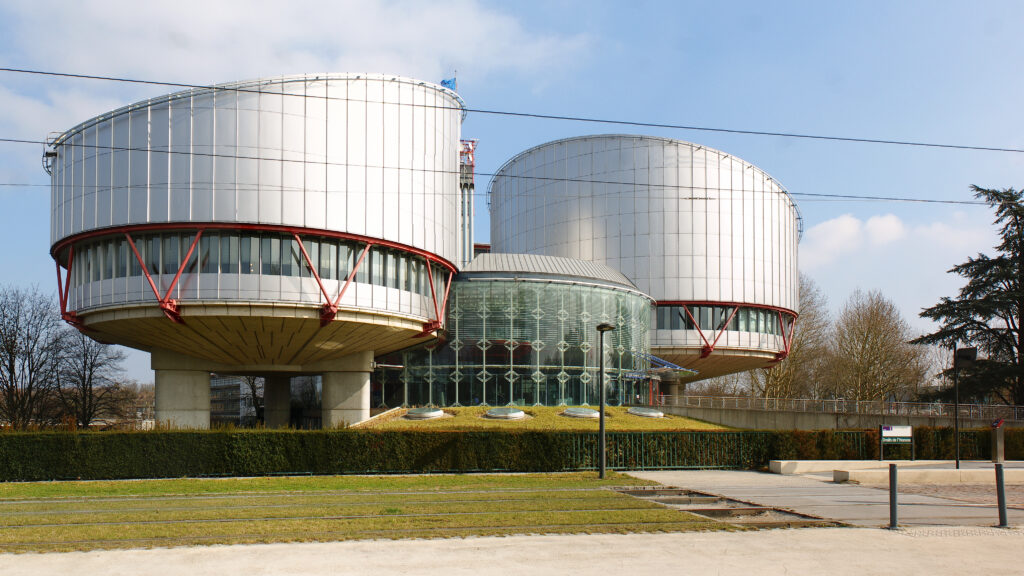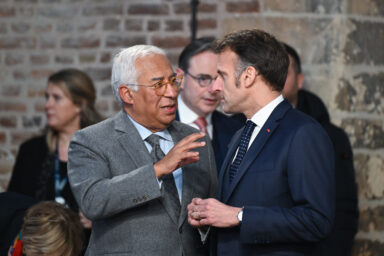The European Union is preparing to reopen one of the most symbolically loaded and legally complex chapters in its institutional history: its formal accession to the European Convention on Human Rights (ECHR). Mandated by the Treaty of Lisbon, the step has never seen finalisation due to political hesitations and legal hurdles.
Justice Commissioner Michael McGrath (IRL)has announced plans to formally request a new legal opinion from the European Court of Justice (ECJ). The technical move reignites a deeply political and divisive debate.
“It’s a step we are required to take under the Treaties, and I believe we have strong backing from the member states,” Mr McGrath said during the EU Justice Council in Luxembourg. The expected timeline is 18 to 24 months. By the time the window has closed, political pressure, legal principle, and migration anxieties are bound to collide.
A legal gap and a scorched precedent
While all EU member states are individual signatories to the ECHR, the Union as a legal entity has yet to accede to the system overseen by the European Court of Human Rights (ECHR) in Strasbourg. In 2014, the EU’s own Court of Justice famously rejected a draft agreement from 2010, citing concerns over sovereignty and judicial autonomy.
Now, the European Commission seeks to relaunch the effort—but the political climate has shifted dramatically. Irregular migration, hybrid threats at the EU’s borders, internal public safety concerns, and growing dissatisfaction with some ECHR rulings have turned a legal procedure into a geopolitical flashpoint.
You might be interested
“I think the issue lies in the fact that, as things stand now with the current setup, you file complaints against individual states. Whereas if the EU ratified it as a whole, you could file complaints against the EU as a whole”, a senior official told EU Perspectives regarding the deadlock of ECHR accession to EU.
The “Letter of Nine”: migration in focus
In recent weeks, nine European heads of government, with Italy and Denmark at the vanguard, issued a joint letter voicing deep concern over how the Strasbourg Court has allegedly expanded the scope of the ECHR. Their reservations concerned mainly matters relating to migration and security.
The leaders argue that although it involves only a minority of migrants, there are cases where convicted criminals cannot be deported due to human rights constraints. This undermines public trust and safety, they claim.
The safety and security of our democratic societies and law-abiding citizens should take precedence. – Letter of Nine
“In our view, the Court has at times protected the wrong individuals,” the letter reads. “As a general principle, the safety and security of our democratic societies and law-abiding citizens should take precedence.”
The signatories call for more national discretion in deporting foreign nationals convicted of serious offenses such as violent crimes and drug trafficking. They also urge for stronger tools to track individuals who cannot face deportation and pose security risks. The also demand to ensure the ability to respond effectively to foreign actors who attempt to “weaponise migration” at EU borders.
Legal commitment, or political trap?
The core issue remains thorny: who ultimately decides what counts as a protected right in Europe, and who gets to limit it in the name of public interest?
For the Commission, EU accession to the ECHR is a logical and symbolic step toward reinforcing Europe’s multilateral legal architecture. But for some national leaders, it’s a potential overreach by a non-EU institution into sensitive areas such as national security, migration, and sovereignty.
Unlike the Luxembourg Court of Justice, the Strasbour-based ECHR is not an EU body. It belongs to the Council of Europe, a broader human rights organization of 46 countries. Accession would mean that EU institutions—from the Commission to agencies like Frontex—could face laewsuits before the Strasbourg court, just like member states currently can.

This might strengthen human rights enforcement, but could also constrain policymaking on issues where public opinion is sharply polarised.
Debate inside the Justice Council revealed deep divisions. Eastern and Central European states, traditionally more skeptical of judicial interference, have aligned with the Italy-Denmark bloc. France and Germany remain cautiously supportive, but are keenly aware of growing domestic pressure on migration.
EU’s foundational commitments at stake
At the same time, both the ECJ in Luxembourg and the ECHR in Strasbourg are bracing for a prolonged period of institutional wrangling. The EU Court will need to rule on a revised accession agreement, which seeks to address its 2014 concerns. That ruling will test not only legal doctrines but the broader balance between judicial review, democratic legitimacy, and collective sovereignty.
In an era of migration crises, geopolitical tension, and polarised electorates, the debate over how to weigh individual freedoms against collective security is not just legal—it’s existential. For the Commission, completing accession to the ECHR would reaffirm the EU’s foundational commitment to rights and rule of law. For several governments, it’s time to redraw the boundaries between courts and political mandates, balancing the needs of national safety and democratic choice. Once again, Europe finds itself at a crossroads—not just in how it protects its citizens, but in how it defines the very values it claims to defend.











